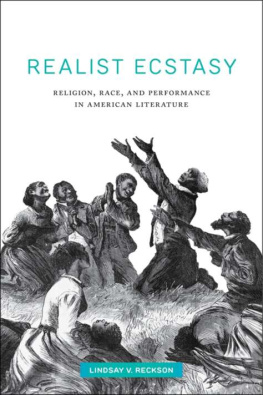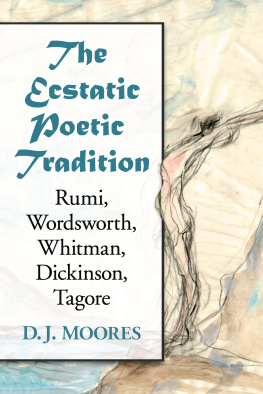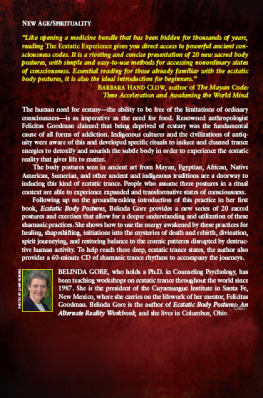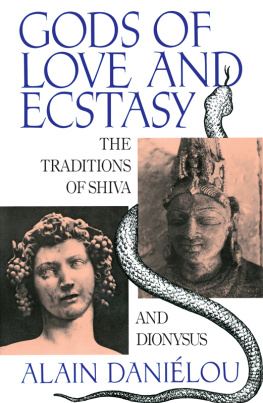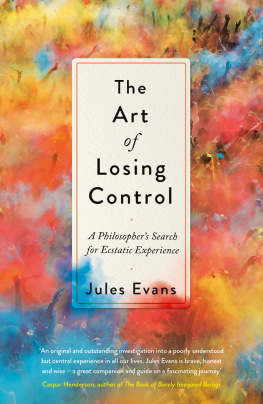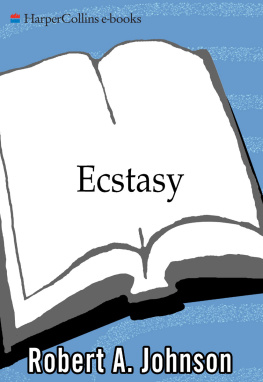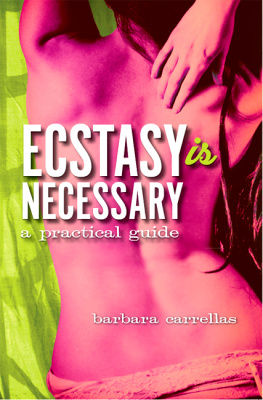KEY TERMS AND ABBREVIATIONS
See the Glossary for more terms.
AVATAR ( HINDI ):an agent who is understood to be the vehicle or embodiment of anothers consciousness; in the original Sanskrit, avatar literally means descentjoining ava (down or below) with the verb root tr (float or pass over something, such as a river)and refers to the way that Hindu deities incarnate in earthly vehicles in order to combat evil and restore balance in the universe; contemporaneously, a digital self-object in a computer-generated environment
BHAV A GAYA ( HINDI ):lit., feelings have come, conventionally used by Rajasthanis to describe a state of spiritual possession
BHUT ( HINDI ):ghost
CS - GO : CounterstrikeGlobal Offensive
CULTURAL CONSONANCE :defined by William Dressler as the degree to which individuals approximate widely shared cultural models in their own beliefs and behaviors
CULTURAL DISSONANCE :an extension of cultural consonance, refers to the stresses, strains, and psychological processes associated with embodying and negotiating potentially competing or conflictual cultural norms or models
DEVI ( HINDI ):goddess
DISSOCIATION :experiences and behaviors that seem to exist apart from the mainstream flow of ones conscious awareness and identity; likewise, psychological absorption refers to a profound narrowing or concentration of attention, and immersion to the sense of losing oneself in another reality such as a computer-generated gaming world
DUNGEONS AND RAIDS :special events in games like World of Warcraft , where groups of players battle powerful monsters (termed bosses ) to win treasure and items like weapons and armor (called gear ); these events generate new copies of an area in the game for a particular group (referred to as instances )
ECSTASY :experiences that allow one to step outside or transcend a current identity and situation, from the Greek ekstasis , which literally means standing outside a current state
ERTL :the authors Ethnographic Research and Teaching Laboratory, at Colorado State University
ETHNOGRAPHY :case study accounts of a groups practices and points of view, relying largely on qualitative field-based methods like participant observation
GAMING DISORDER :a mental-health condition recently judged by the American Psychiatric Association (APA) and the World Health Organization (WHO) to warrant formal inclusion in their latest diagnostic manuals; sometimes glossed as gaming addiction and toxic immersion
GW 2: Guild Wars , a multiplayer online role-playing game produced by the company ArenaNet
GUILD :associations of like-minded players in games like World of Warcraft; the Knights of Good is a progression guild , in the manner its members aim to systematically progress through the games new raiding content, but less hardcore than more competitive guilds
HEALED HEALER :a term used to describe spiritual specialists such as mediums and shamans, who, in overcoming their own life problems, gain the ability to help others
HEALTH DISPARITIES :differential mortality and morbidity across social groups, related to, e.g., cardiovascular disease, cancer, and metabolic problems such as diabetes, which are understood to be driven importantly by factors such as poverty, educational attainment, and racism
KOG :The Knights of Good
MMORPG :massively multiplayer online role-playing games; examples are World of Warcraft and Guild Wars 2; also abbreviated MMO
PIR BABA ( HINDI ):a Muslim saint; Mastanna Baba is an example
PVP :Player-vs-Player, a play mode in games like World of Warcraft , where players test their skills against each other
RL :real life, in gamer talk; sometimes also IRL , in real life
SAKTI ( HINDI ):in Hinduism, spiritual power or divine energy
SDT :Self-Discrepancy Theory, a framework developed by Edward Higgins, to examine how discrepancies between a persons perception of their actual and ideal selves can predict mental and emotional health
SHAMAN ( ORIGINALLY TUNGUS ):a spiritual specialist believed to have the ability to project his or her consciousness outside the physical body; from saman , lit., one who shakes, referring to experiences involving trance and physical shaking
SPIRIT MEDIUM :a spiritual specialist believed to have the power to channel into their body outside spirits and deities, becoming the medium or channel through which spiritual agents communicate with humans; Bedami eventually transitioned into the role of spirit medium; Kani Bai, a tribal woman, is another example of a medium


